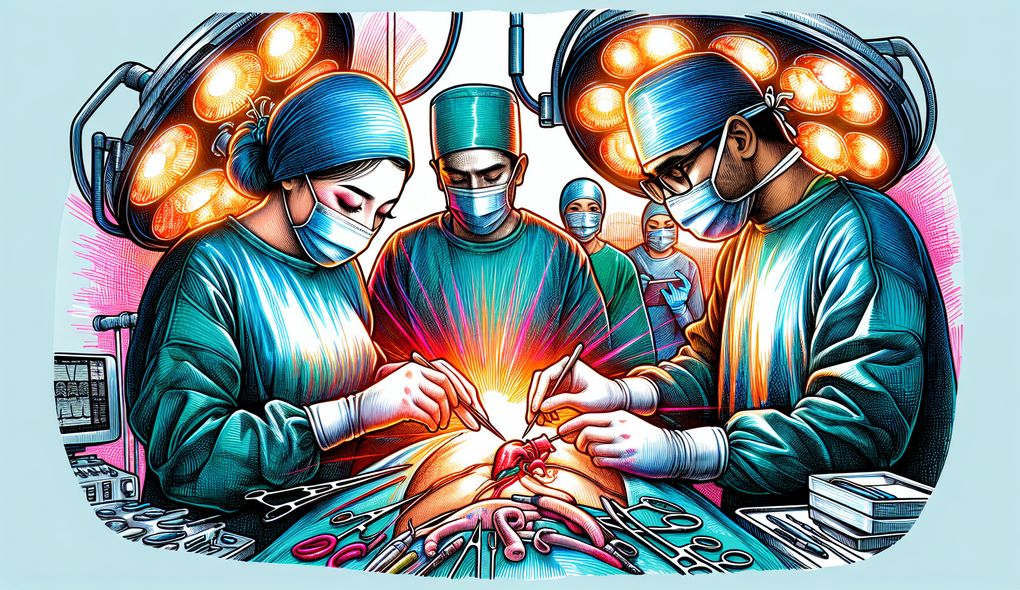How do you handle difficult patients or challenging patient interactions during surgical procedures?
INTERMEDIATE LEVEL

Sample answer to the question:
When it comes to handling difficult patients or challenging interactions during surgical procedures, I believe in maintaining a calm and empathetic approach. I understand that patients may be anxious or in pain, and it is important to address their concerns and provide reassurance. During surgical procedures, I ensure clear communication with the patient, explaining each step of the process and answering any questions they may have. If a patient becomes difficult or uncooperative, I try to understand the underlying cause and address it accordingly. This may involve adjusting pain management or involving the patient's family members for support. Overall, my goal is to provide the best possible care while also ensuring a positive patient experience.
Here is a more solid answer:
When it comes to handling difficult patients or challenging interactions during surgical procedures, I have developed a set of strategies to ensure the best possible outcomes. First and foremost, I prioritize effective communication and build a rapport with the patient prior to the procedure, addressing any concerns or fears they may have. During the surgery, I maintain clear and reassuring communication, explaining each step of the process and providing updates to keep the patient informed. In challenging situations, such as a patient becoming uncooperative or anxious, I remain calm and focused, using techniques such as distraction or involving the patient's family members for support. Patient safety is always my top priority, and I follow strict infection control practices. Additionally, I am always open to feedback and learning from challenging interactions to continuously improve my approach. By combining empathy, clear communication, and a focus on patient care and safety, I strive to navigate difficult situations with professionalism and compassion.
Why is this a more solid answer?
The solid answer expands on the basic answer by providing specific strategies for handling difficult patient interactions during surgical procedures. It emphasizes the importance of effective communication, building rapport, and maintaining clear and reassuring communication throughout the procedure. It also mentions techniques like distraction and involving family members for support. The answer highlights the commitment to patient safety and continuous learning from challenging interactions. However, it could further emphasize the importance of ethical medical practices and the ability to work efficiently under pressure in a fast-paced environment.
An example of a exceptional answer:
Handling difficult patients or challenging interactions during surgical procedures requires a combination of technical expertise and strong interpersonal skills. To navigate these situations, I approach each patient with empathy and compassion, recognizing the fear and anxiety they may be experiencing. Prior to the surgery, I invest time in building trust and establishing open lines of communication, ensuring that the patient feels heard and valued. During the procedure, I remain focused, calm, and adaptable, adjusting my approach based on the patient's needs and responses. I actively involve the patient in decision-making whenever possible, empowering them to be part of the process. In challenging situations, I utilize a range of techniques, such as gentle persuasion, distraction, or providing additional pain management options. Additionally, I work collaboratively with the healthcare team, seeking their input and guidance when needed. After the surgery, I take the time to provide thorough post-operative care instructions, addressing any concerns or questions the patient may have. Overall, I strive to balance technical excellence with patient-centered care, ensuring that each patient feels supported and respected throughout the surgical journey.
Why is this an exceptional answer?
This exceptional answer goes above and beyond by highlighting the importance of empathy, trust-building, and patient empowerment in handling difficult patient interactions during surgical procedures. It emphasizes the adaptability and collaborative approach to tailor the care according to the patient's needs. The answer also mentions a range of techniques used to navigate challenging situations and emphasizes the commitment to providing thorough post-operative care instructions. The answer demonstrates a strong focus on patient-centered care and emphasizes the surgeon's commitment to the well-being and satisfaction of each patient.
How to prepare for this question:
- Familiarize yourself with techniques for handling difficult patients, such as active listening, empathy, and de-escalation strategies.
- Reflect on past experiences where you successfully handled challenging patient interactions and think about the strategies you used.
- Research and understand the potential causes of difficult patient behavior, such as pain, anxiety, or fear, and how to address them effectively.
- Study and stay updated on current best practices in patient communication, including informed consent, empathetic communication, and patient education.
- Consider seeking feedback from colleagues or mentors on your interpersonal skills and identify areas for improvement.
What are interviewers evaluating with this question?
- Effective communication and interpersonal skills, with an emphasis on patient care

